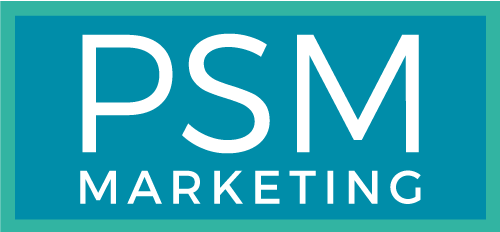In order to attract new clients, lawyers need to understand marketing. Lawyers quickly acknowledge marketing is not something they learned in law school and that “doing marketing” doesn’t come naturally to them. If lawyers are really honest with themselves, most engage in marketing activities because they feel they have to, not because they enjoy the process. The vast majority of lawyers I work with as a marketing consultant and coach simply want to do what they do best: practice law.
The purpose of this article is to remove the mystique from marketing by focusing on innovative and results-oriented strategies that won’t break the bank — or take up too much of your valuable time. Contrary to popular belief, there is not a direct correlation between spending a lot of money on marketing and attracting new, high-quality clients. In fact, many lawyers who throw money at marketing hoping to advertise their way to success end up disappointed with the results. The reason? Successful marketing is about relationship building. Ask your best clients how they found you. It is highly likely they were referred to you by someone they trust (friend, family member, former client). At the end of each section below, you will find a “Be innovative!” idea you can implement right away. The concept of finding “innovative” strategies to build your practice may sound elusive. To put your mind at ease, consider this concept: The very best marketing for lawyers can be accomplished by leveraging the activities you would be doing anyway. Like what, you ask? If you love boating, invite a prospective client or referral source to join you. If you are a runner, forego running alone in lieu of joining a running club to meet new people. Don’t just stand on the sidelines at your kids’ soccer games; make a point of engaging with other parents. Being innovative in marketing means finding ways to turn your interests and involvement into opportunities to meet others. At its core, marketing should be fun for you and for your contacts.
I Didn’t Go to Law School to Be a Salesperson
Know the difference between sales and marketing. Marketing is about the messages you convey, and sales is about asking the right questions. Marketing is what you do to build name recognition in the marketplace. You are marketing when you provide exceptional client service, add content to your website, write an article, speak to a group, make a referral, host an event, write a proposal, research a prospective client or referral source, or attend trade or professional association meetings. You market through your visual identity, being quoted in the paper, serving on a board, and engaging in social media.
Sales is the art of asking the right questions—not the proverbial dog-and-pony show where you talk about who you are, your credentials, and what a fabulous lawyer you are. Sales is not about you. It is about the person sitting in front of you—and your ability to help that person solve a problem he or she is facing. Sales involves asking probing questions, listening, and digging deeper. As a lawyer, you are inherently good at sales. (Yes, I really said that!) Law school trains you to be good in sales by helping you learn the art of conducting due diligence on a business deal, leading discovery in litigation, selling your case to a jury. You will be amazed at what an exceptional salesperson you are when you start the conversation with, “So, tell me about your situation,” or “What problem are you trying to solve?” or “Let’s talk about why you are here today.”
Be innovative! Create a list of questions you can ask a networking contact or a prospective client. Save the questions on your phone or tablet so you will always have them handy.
Branding? You Are Your Brand
“Branding” is a term that can strike fear into lawyers because it sounds advertising-oriented. Branding is about identifying what makes you unique and deciding what you want to be known for, then consistently communicating these messages to the world. Like picking a major in college, branding means choosing the niche within which you want to be known and being on the “short list” of lawyers practicing in this area. If you practice family law, you might want to develop your brand around working with business owners, physicians, military families, women, collaborative law, or foreign adoptions. If you are a business lawyer, you might want to develop your brand around a particular industry such as manufacturing, family-owned businesses, woman-owned businesses, or professional services firms. Once you have defined your niche, bring your brand to life through your communications, logo and materials, website, social media posts, events, presentations, elevator message, blogging, and article writing.
Be innovative! Ask your contacts and clients to tell you what they think you are best known for. Review the responses and work them into everything you do.
Become a Thought Leader: It’s Time to Engage on Social Media
Word on the street is, you need to be doing “more” with social media, that social media is here to stay, and that you’ll be left in the dust if you do not jump on board. Actually, it’s true. But there are a few concepts and ideas that will help you build a bridge to social media engagement that will not overwhelm you. The ultimate goal of social media is to take your knowledge and expertise and get in front of people who care. The concept is called “thought leadership.” You can become a thought leader if you:
- Create an all-star LinkedIn profile. LinkedIn is for professionals. You are a professional. Therefore, you must have a LinkedIn profile. Make sure you add a professional picture, write in first person, and let your enthusiasm show through. Then, connect with people in your network—but only those you know. Your goal should be to have more than 500 contacts. You can do it.
- Join groups on LinkedIn. Do a search for groups to “join.” Find those that attract prospective clients and referral sources. Join your law school alumni group. You can join up to 50 groups.
- Engage with your groups. Add substantive comments to group discussions, start your own discussion, and comment on others’ discussions.
- Create company profiles on LinkedIn and Facebook. Make sure your firm has a presence on both sites and that your company profiles are accessible through your e-mail signature block and on your website.
- Create content and post it. Being a thought leader is all about providing helpful and relevant information to your contacts. Develop a calendar of posts. You can find excellent material to post by setting up Google Alerts (google.com/alerts) on keywords and topics you are interested in. Use a social media aggregator service such as HootSuite.com and schedule a whole month or two of posts in advance.
- Blog. The word “blog” is both a subject and a verb. In this instance we are talking about the action verb—the act of writing timely and relevant 200- to 400-word blog posts—then promoting your blog posts to the LinkedIn groups you have joined, posting a link to your blog on your LinkedIn status update, and integrating your blog into your website.
- Offer free webinars. Several resources, such as GoToWebinar.com, allow you easily to offer free webinars to your contacts. In doing so, you will develop a following of people interested in your expertise.
Be innovative! Schedule a recurring appointment on your calendar each day for ten minutes and spend that time exclusively on enhancing your online reputation through social media.

